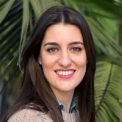Actually, it is a technically challenging assisted reproduction option that is permitted in the UK for the moment. It is done using the egg of the intended mother, the sperm of the intended father, and a donor egg. It is used to prevent mitochondrial diseases, that is, those that can be inherited by offspring due to defects in the mitochondria of the egg.
Mitochondria are organelles that can be found within cells, and their function is to produce energy. If we look into the inside of an egg cell, we can find genetic material in the nucleus, along with a small proportion of mitochondria in the cytoplasm.
The three parent technique involves replacing the nucleus of the donor egg (free of sick mitochondria), which contains the genetic material of the egg donor, with the nucleus of the mother. Thus, the intended mother will be the genetic mother of the child, but the mitochondria of the egg's cytoplasma will pertain to the donor. By doing this, we can ensure that mitochondria are healthy, and the baby will not be sick. Finally, the resulting egg is fertilizing using the intended father's sperm.
